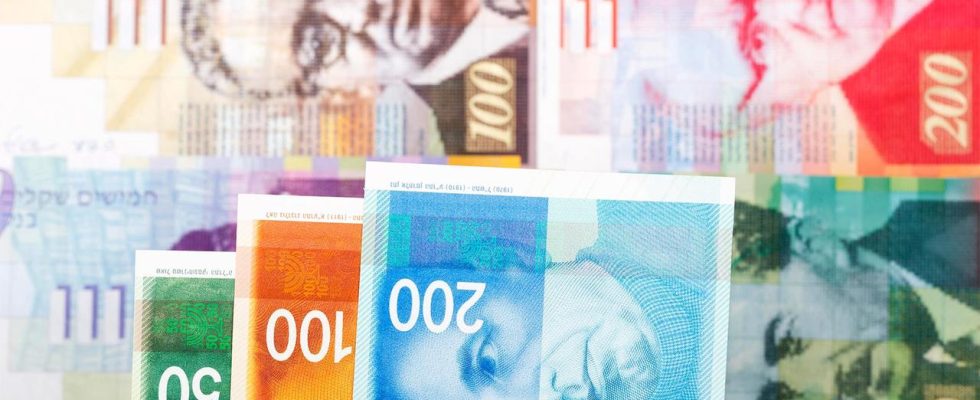Israel’s currency, the shekel, has fallen to its lowest level since early 2016. There is massive speculation. The weak currency is putting Israel’s central bank under pressure.
The Middle East conflict is also leaving its mark on the financial markets. Since Hamas’ terrorist attacks on Israel, the shekel has lost almost five percent of its value and has fallen to its lowest level against the US dollar since early 2016. The Israeli currency had already come under pressure in the past few weeks. The trigger was the controversial legal reform in Israel and the widespread protests against it.
However, there is now talk of massive speculation against the shekel. It is said that bets against the currency, so-called short positions, have increased sharply. At the same time, the prices of credit default insurance rose sharply. Financial professionals use this financial instrument to protect themselves against possible bond defaults.
The recently increased prices reflect the higher risk, but can also be understood as bets against a bond. They became an issue, among other things, during the Euro sovereign debt crisis, when there was speculation on the financial markets that Greece would go bankrupt.
Pressure on Israel’s central bank
The weak domestic currency is putting Israel’s central bank, the Bank of Israel (BoI), under pressure after it intervened – in vain – against the exchange rate losses and bought shekels worth 30 billion US dollars. A key interest rate decision is due on Monday. It is now assumed that the BoI will leave the key interest rate unchanged at 4.75 percent instead of lowering it.
With the lower interest rates, the BoI would have wanted to support Israel’s economy by making it easier for companies to borrow. Otherwise, the country is more dependent on a strong home currency. Water and raw materials are scarce. Apart from some mineral deposits in the Dead Sea and natural gas fields off the coast developed in 2011, Israel is dependent on imports, most of which have to be paid for in US dollars.
Foreign trade as Economic engine
Despite its almost ten million inhabitants, Israel’s economy depends almost exclusively on foreign trade. “The limited internal market and the almost complete lack of access to markets in the region have made an export orientation overseas necessary from the outset,” says the German-Israeli Chamber of Industry and Commerce. “This initially applied primarily to agricultural goods, later also to products from the armaments, textile and plastics industries and, for almost 20 years, increasingly to high-tech production.”
Germany is Israel’s third most important trading partner with exports worth seven billion euros (2022). “With a share of only 2.4 percent of goods exports, Germany was not a significant market for Israel despite the size of the German economy,” writes the German foreign trade agency Germany Trade & Invest (GTAI)B in its annual report on Israel.
Market turbulence in the region
The events of the past week have caused severe turbulence on the markets in the Middle East. Fearing that the conflict would spread, investors withdrew massive amounts of money, which was reflected, among other things, in sharp price losses for bonds from Egypt and Jordan. Yields rose sharply in the respective countries.
The financial markets are assuming that the turbulence and pressure on the shekel will continue for the time being. The current rate of over four shekels per US dollar is considered unusually expensive and should return when the situation in the conflict calms down again, as several analyzes consistently say. An expansion, on the other hand, would have consequences for the region that are currently difficult to estimate and – through sharply rising oil prices – for the rest of the world.

